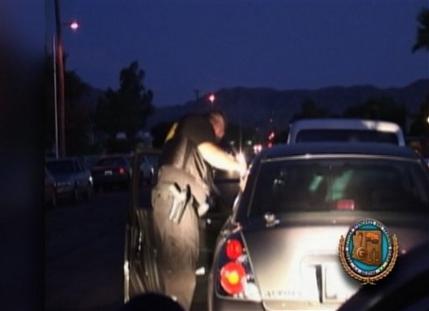HELENA, Mont. A federal judge on Thursday reinstated protections for wolves in Montana and Idaho, saying the government made a political decision in removing the protections from just two of the states where Northern Rocky Mountain wolves roam.The decision puts a halt to wolf hunts in Montana and Idaho planned for this fall. Montana wildlife regulators last month set the wolf-hunt quota at 186, more than doubling last year’s number, with the aim of reducing the state’s wolf population.U.S. District Judge Donald Molloy in Missoula said in his ruling that the entire region’s wolf population either must be listed as an endangered species or removed from the list, but the protections for the same population can’t be different for each state.
Last year, the U.S. Fish and Wildlife Service turned over wolf management to Montana and Idaho wildlife officials but left federal endangered species protections in place for wolves in Wyoming. There, legislators have approved a plan classifying wolves in most areas of the state outside the vicinity of Yellowstone National Park as predators that could be shot on site.
Molloy sided with the wildlife advocates who sued the federal government, ruling that Endangered Species Act does not allow the Fish and Wildlife Service to list only part of a species as endangered, and the federal agency must protect the entire Northern Rocky Mountain wolf population.”The rule delisting the gray wolf must be set aside because, though it may be a pragmatic solution to a difficult biological issue, it is not a legal one,” Molloy wrote.
Gray wolves were listed as endangered in 1974, but following a reintroduction program in the mid-1990s, there are now more than 1,700 in the Northern Rockies, which includes all of Idaho, Montana and Wyoming, along with portions of Washington, Oregon and Utah.Defenders of Wildlife, the Greater Yellowstone Coalition and other wildlife advocates sued the federal government after the Fish and Wildlife Service decision in April 2009. They argued that the government’s decision would have set a precedent allowing the government to arbitrarily choose which animals should be protected and where.
Doug Honnold, an attorney for EarthJustice representing the plaintiffs, said he was gratified by the ruling, though he is sure there will be another chapter to the story.”For today, we are celebrating that the approach we thought was flatly illegal has been rejected. The troubling consequences for the Endangered Species Act have been averted and the wolf hunts are blocked,” Honnold said.
The plaintiffs don’t want wolves on the endangered species list forever, but they do want a solid plan in place, said Suzanne Stone, Northern Rockies representative for Defenders of Wildlife. The government’s plan was poorly devised and would have allowed too many wolves to be killed, she said.”We need a good wolf management and delisting that allows for a healthy interconnected wolf population,” Stone said.
Officials with the U.S. Fish and Wildlife Service and the Idaho Department of Fish and Game declined to comment immediately after the ruling was released, saying they had yet to read the whole decision.The Montana Fish, Wildlife & Parks Commission has asked the state to appeal the ruling to the 9th U.S. Circuit Court of Appeals, according to a statement by the state Fish, Wildlife and Parks agency.
Carolyn Sime, wolf program coordinator for Montana Fish, Wildlife and Parks, said Montana has done everything it’s been asked to do in developing its state management program but now will have to apply federal law and regulations once more.”This puts a spotlight on Wyoming and seeing what can be done with Wyoming,” Sime said.The increase in the wolf population brought livestock losses for ranchers and competition for hunters for big game, such as elk. Molloy’s decision means ranchers in northwestern Montana will no longer be able to haze, harass or kill wolves that prey on their livestock, Sime said.
Wolves in southwestern Montana will revert to their “experimental population” status and ranchers there will still be able to kill wolves that attack their animals, she said.But a big blow is the loss of a hunting season, Sime said.”That’s clearly a management tool that we want to have in the toolbox. We think it’s legitimate and appropriate,” she said.Both Idaho and Montana held wolf hunts last year. Montana’s kill ended with 73 wolves and Idaho’s with 185.
Idaho’s congressional delegation released a statement that said Molloy’s ruling ignored the exploding population of wolves and that the state can manage wolves in a sustainable and responsible way.”We look for a more reasonable decision from a higher court,” said the statement from Sens. Mike Crapo and Jim Risch and Reps. Mike Simpson and Walt Minnick.At the end of 2009, there were at least 843 wolves in Idaho, 524 in Montana and 320 in Wyoming, with more in parts of Oregon and Washington state.
Thursday’s ruling could affect a lawsuit in which Wyoming charges the Fish and Wildlife Service had no reason to refuse to turn over management of gray wolves to Wyoming as it did to the other states. The case is before U.S. District Judge Alan B. Johnson of Cheyenne.”If the rule is vacated, there’s a question that Judge Johnson has to consider of whether or not there is something for him to decide,” said Bruce Salzburg, Wyoming attorney general.(AP)




